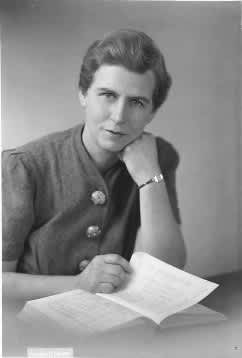"We are celebrating women's history month by highlighting historical
brave, bold and breakthrough women. We are also featuring many of the
faces in the Black women's community who have done so much to build our
nation. These women, many of them lesser known, offered their lives to
the improvement of humanity and to improving the conditions of women. We
can be proud to stand on the foundation that they have built. I have
learned so much from their stories."
Christina Skovsgaard, Oslo

CAROLINE F. WARE
Caroline “Lina” Ware, was born and raised in Brookline, Massachusetts into a prominent, generous family in 1899. She received her education at Vassar, Radcliff and Harvard (PhD), in 1925.
She was one of the most innovative historians of her day, she astonished the profession when her PhD dissertation won a $10,000 prize. She had demonstrated that the early cotton mills of New England set the pattern for the future industrial development of the country and changed the nature of rural life, especially for young women. Ware's dissertation became a well-reviewed book, yet the only satisfactory job she could find was back at Vassar, where she was soon recognized as a master teacher. Ware moved to New York in 1931 in order to join her husband, Gardiner Means. During this time, Ware worked on a community study of Greenwich Village. She published her research in a groundbreaking book titled, “Greenwich Village”. She found a job in the Department of Agriculture and soon became "the person to call". Ware became involved in President Roosevelt’s New Deal, specifically creating a new field called “consumer affairs”.
When the war started there was less interest in the problems of consumers. She was already teaching constitutional history at Howard, the nation's preeminent black university. When Pauli Murray, a second-year law student, asked to audit her class, the two women became good friends. As a two-person civil-rights movement, they organized Howard students for marches and sit-ins and integrated two restaurants. They also set a personal example of ignoring color in their social lives. Ware remained at Howard until 1961.
Her 70-acre farm was a favorite haunt of young New Dealers setting out to change the world. Visitors included diplomats and leaders of all sorts of causes, any of whom might be put to work as what Ware labeled IBUL: "intelligent but unskilled labor”.
President Roosevelt appointed Ware to be deputy to Harriet Elliott, the consumer representative of a National Defense Advisory Commission. After resigning from her position in the National Defense Advisory Commission, Ware joined the Office of Price Administration consumer advisory group.
In 1963 President John F. Kennedy selected Caroline Ware to be a member of the President's Commission on the Status of Women.
She and her husband, Gardiner Means, donated the seventy acres of land as a public park. They were also environmentalists before there was such a term. She died in 1990.


